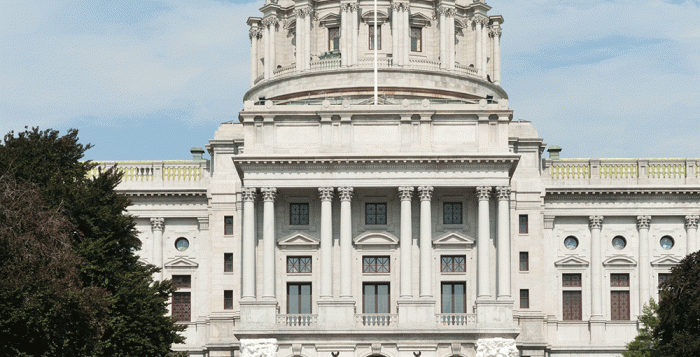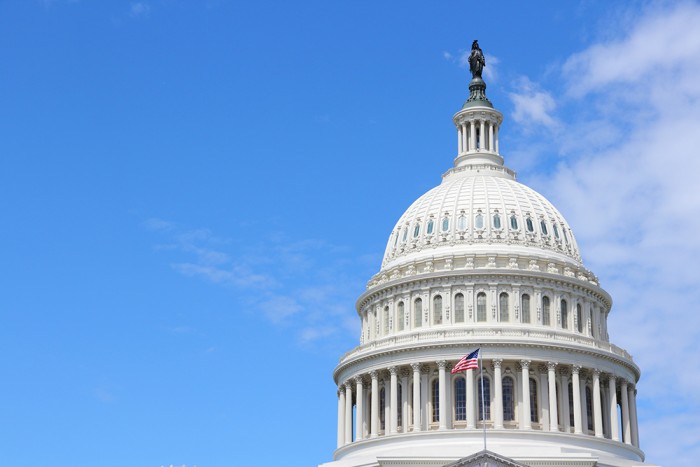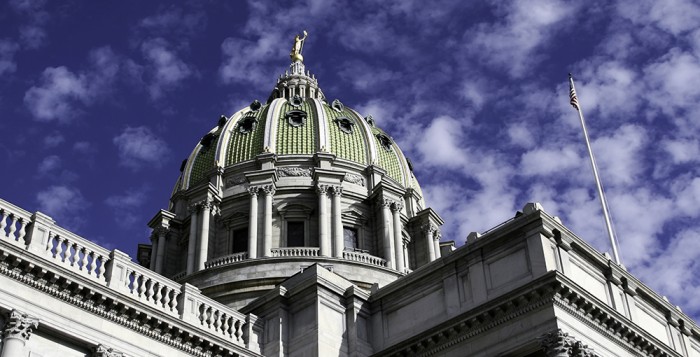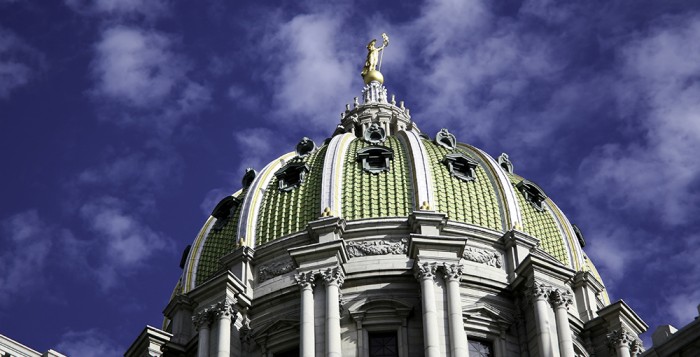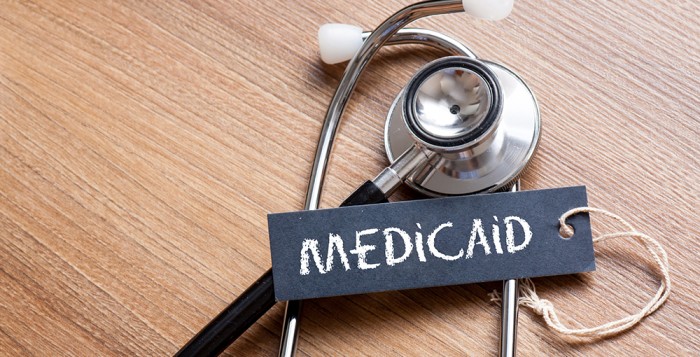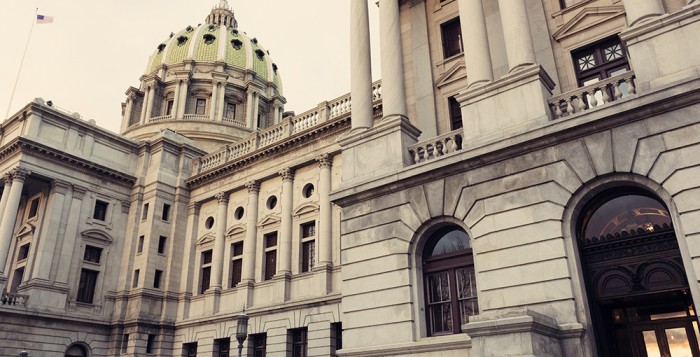Yesterday, a group of state House Republicans held a press conference announcing they have found more than enough money to pay for both last year’s budget deficit and this year’s additional spending without raising any new taxes.
The more than $2.4 billion in funds would come mostly in the form of transfers from various state special funds that, according to the work group, have “inordinately high” account balances.
The state’s operating budget contains 218 such funds, most having both a balance for yearly operating expenses and a reserves balance (some also have investment fund balances as well), and the work group’s plan is to tap 41 of them. Of that total, the GOP legislators said 34 have been used in a similar fashion in the past, so precedent already exists for what they are proposing to do this budget year.
The transfers are as follows:
Agricultural Conservation Easement Purchase Fund
Proposed transfer: $27 million
Fund balance: $36.7 million
Fund purpose: Created in 1988, this fund was to be used for farmland preservation through the purchase of agricultural conservation easements.
Banking Fund
Proposed transfer: $25 million
Fund balance: $36.1 million
Fund purpose: It provides for the administration of the Department of Banking and Securities and regulation of the financial services industry and are to be used in the event of a seizure or liquidation of a financial institution, association or credit union.
Environmental Stewardship Fund
Proposed transfer: $72.7 million
Fund balance: $104.8 million
Fund purpose: This fund, which is fueled by money that comes in from landfill fees, is to provide for farmland preservation, open space protection, abandoned mine reclamation, watershed protection and restoration, water and sewer infrastructure, and improvement and conservation of state and community parks and recreational facilities.
Hazardous Sites Cleanup Fund
Proposed transfer: $50 million
Fund balance: $80.4 million
Fund’s purpose: Created in 1987, this fund is to finance the cleanup and restoration of abandoned hazardous waste sites in the commonwealth.
Keystone Recreation, Park and Conservation Fund
Proposed transfer: $100 million
Fund balance: $147.6 million
Fund’s purpose: This is to provide for increased acquisitions, improvements, and expansions of state and community parks, recreation facilities, historic sites, zoos, public libraries, nature preserves and wildlife habitats.
Machinery and Equipment Loan Fund
Proposed transfer: $49 million
Fund balance: $59.5 million
Fund’s purpose: Created in 1988, this fund is to provide low-interest financing for machinery and equipment for Pennsylvania businesses to facilitate their growth, competitiveness, and value-added capacity.
Multimodal Transportation Fund
Proposed transfer: $120 million
Fund balance: $189.8 million
Fund’s purpose: Created in 2013, this is to provide for additional funding for passenger rail, rail freight, ports and waterways, aviation, bicycle and pedestrian facilities, roads and bridges and other modes of transportation.
911 Fund
Proposed transfer: $40 million
Fund balance: $74 million
Fund’s purpose: Created in 2015, this fund, fueled by a surcharge on cell phone bills, is to support a statewide integrated 911 plan.
PA Infrastructure Bank Fund
Proposed transfer: $30 million
Fund balance: $52.9 million
Fund’s purpose: Established in 1997, this fund is to make loans to or enter into leases with qualified borrowers to finance the costs of transportation projects and rail freight infrastructure.
Public Transportation Trust Fund
Proposed transfer: $357 million
Fund balance: $477.8 million
Fund’s purpose: Created in 2007, this is to provide dedicated funding for public transportation to cover public transit agencies’ operating costs, capital and asset improvements, and programs of statewide significance.
Racing Fund
Proposed transfer: $27 million
Fund balance: $36.2 million
Fund’s purpose: This fund is to be used for the regulation of horse and harness racing.
Recycling Fund
Proposed transfer: $75 million
Fund balance: $89.5 million
Fund’s purpose: Created in 1988, this fund, fueled by a fee on waste disposed at landfills or recycling centers, is for recycling and planning grants, market and waste minimization studies, and public information and education activities.
Small Business First Fund
Proposed transfer: $25 million
Fund balance: $27.5 million
Fund’s purpose: This provides low-interest loans for small businesses of 100 employees or less for such projects as land and building acquisition and construction, machinery and equipment purchases, working capital, compliance with environmental regulations and municipal or commercial recycling.
Underground Storage Tank Indemnification Fund
Proposed transfer: $100 million
Fund balance: $224.7 million*
Fund’s purpose: Created in 1989, this fund is to provide claim payments to owners and operators of underground storage tanks who incur liability for taking corrective action or bodily injury or property damage caused by a release from underground storage tanks.
*Rep. Dan Moul said this was the year-end balance on June 30, 2017.
Volunteer Companies Loan Fund
Proposed transfer: $25 million
Fund balance: $49.3 million
Fund’s purpose: This fund provides loans for acquisition and replacement of volunteer fire, ambulance, and rescue company equipment and facilities.
Pennsylvania Professional Liability Joint Underwriting Association
The plan proposes to take $200 million from this fund that was created by state law to offer medical malpractice insurance of last resort for doctors and medical facilities.
Budgetary reserve
The plan proposes to eliminate $189.4 million that was included in the enacted 2017/18 state budget that was put in reserve by Gov. Tom Wolf to ease the state’s cash flow problem while waiting on a completed revenue package.
Among the items that would be impacted by cutting out this funding altogether are the $5 million for Capitol Complex fire protection that is paid to the City of Harrisburg; $4 million for the mobile science van program; and more than $1.1 million for mental health services, along with 65 other budget lines that would get trimmed.
Unspent money from past years
The plan includes using $400 million in money that was appropriated in past years but went unspent.
Managed Care Organization Assessment Increase
The plan proposes to use the increase in the annual monetary assessment on managed care organizations that went into effect on July 1 to generate $100 million to help fully fund the state budget.
Redirecting tax dollars to general fund from restricted accounts
The plan calls for diverting $100 million of tax money that is carved out for special funds and redirect to help bring the state’s general fund into balance.
VW Settlement
The plan calls for using the $30.4 million that Pennsylvania received from a settlement of a multi-state lawsuit against Volkswagen over the company’s diesel emissions-cheating scandal.
Tapping the PA Liquor Control Board for more money
The plan also would require an additional $25 million transfer from the Pennsylvania Liquor Control Board from wine and spirit sales, for a total of $210 million.
Imposing a sales tax on online marketplace
The plan proposes to recover more state sales tax from online purchases to generate $31.7 million. The Senate-passed tax and borrowing plan to balance the budget also included this as a revenue generator.
Cutting tax credits
The plan calls for cutting in half funding available for most state tax credit programs but leaves the popular Educational Improvement and Opportunity Scholarship tax credit programs untouched. This is expected to free up $28.3 million.
The PA House is scheduled to reconvene next Monday, September 11, and during the session week the House as a whole will determine whether there’s enough support within their own caucus to pass the work group’s proposal. House Democrats and the Governor’s office do not support the work group’s plan.
As more information becomes available, RCPA will keep members informed. In the meantime, if you have questions, please contact Jack Phillips, RCPA Director, Government Affairs.
*Information contained in this info sourced from a Pennlive.com article – Here’s a breakdown of ‘taxpayers’ budget’ and how it avoids a major tax increase or borrowing money, posted on September 05, 2017, at 06:20 pm | Updated September 06, 2017 at 06:18 am and a Capitolwire news story written by Capitolwire Staff Writers Robert Swift and Carley Mossbrook.










